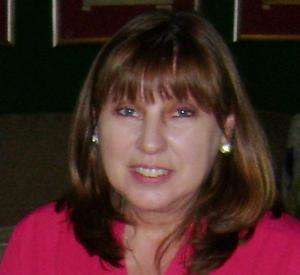Understanding the traumatic bonds that bind us to toxic relationships

9 November 2018
The question most often asked about those living with domestic abuse is "Why do they stay?"
The answer is complex and the phenomenon which causes victims to become trapped not widely understood. It’s called ‘traumatic bonding’. In toxic and abusive relationships, the victim becomes weakened and loses perspective; instead of taking protective measures and walking away, they look to the abuser for the solution to their suffering.
For example, they may try endlessly to persuade the abuser to become once again the loving person they thought they had met, against clear evidence to the contrary, they persist in the irrational belief that things will turn out okay and the most tragic consequence is the loss of self regard and protection, sacrificed first to the desires, then to the dominance of another.
This is no temporary blip or aberration. Often originating in past trauma, it is a deep-seated and entrenched psychological process which can defy logic and cloud reasoning. The slightest indication that things may change can cause hope and expectation to re-surface and dangers which are all too clear to outsiders are rationalised away.
In one heartbreaking case, a mother was subjected to a pattern of violence and irrational behaviour from the father of her three children. Despite this, she told those closest to her that he would never hurt her or the kids. Subsequently, she was stabbed to death by the man in the presence of two of the children, one of whom, though injured, managed to escape and raise the alarm.
I know first-hand of the terrible imprisonment of traumatic bonding because it happened to me. I have been a qualified social worker for 36 years. I spent a long career in the criminal justice field where for many years I was a senior manager, with lead responsibility for public protection policy and practice in my area.
I was dealing daily with the impact of high risk offending and knew well that most victims had suffered at the hands of a perpetrator who was in a relationship with them. Despite this knowledge and experience, I lived in a relationship characterised by coercive control, threatening behaviour and incidents of violence.
I was isolated and depressed, trying desperately to maintain an outward veneer of respectability whilst returning daily to a situation which many would have abandoned long before. I felt unable to seek help from mainstream services, and only when circumstances conspired to ‘blow my cover’ did I begin to emerge into the light. This journey was long, arduous and far more challenging than it should have been due to distorted thinking and habit behaviour.
Thankfully, I’m now free and many years away from these experiences. I’m also in a happy and balanced relationship, though the road to recovery has been long and hard and at one point almost cost me my life.
I’m now a social work lecturer and recently I attended a placement visit during which, when discussing a case, the practice educator expressed frustration at the actions of a mother who had remained with a man who posed a risk to the children.
She just couldn’t understand how this woman could have failed to break away. I asked if she had heard of traumatic bonding, which she hadn’t, and took the opportunity to explain that what seems on the surface a simple equation is in reality far more complex and difficult to address.
Of course relationships are complex and it’s our job to safeguard those at greatest risk, though a little more insight into how things happen as they do just might enable victims to detach from toxic bonds and keep families together.
Toxic relationships and traumatic bonding can happen to anyone, not just with life partners but at work, in families, between friends and in many other situations where an imbalance of power can cause the weaker party to become trapped; one notable example is child sexual exploitation.
Through sharing my story I have come to realise that there is much hidden abuse amongst people such as myself, who often feel a sense of failure and isolation, that they should be able to cope, and therefore ashamed to disclose their suffering and ask for help.
By understanding the origin of their life patterns, remembering the self that was lost along the way and knowing what kind of relationships they deserve, survivors can make safer life choices.
I’d like to promote better understanding of traumatic bonding, in the hope of enhancing the freedoms and self-regard of those so cruelly trapped, and the safety of those who depend upon them.
Kath Twigg is a social work lecturer, trainer, mentor and writer. She has written a book entitled The Hall of Mirrors, How to Change Life Patterns and Avoid Toxic Relationships, which is available in Kindle and paperback versions on Amazon. For more information visit Kath’s website: kathtwigg.co.uk
